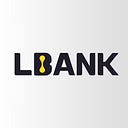What are Bitcoin Futures?
A BTC futures contract involves an agreement between two parties to buy or sell BTC at an agreed-upon price on a future date. The contract itself is the traded commodity, rather than the actual Bitcoin asset. This arrangement allows investors to gain exposure to BTC without the need to hold the physical cryptocurrency.
When dealing with Bitcoin futures, you enter into a contract that speculates on the future price of Bitcoin, whether it will rise or fall. However, you do not possess any actual Bitcoin since it remains in the custody of futures trading platforms like LBank. Essentially, you cannot directly purchase or sell Bitcoin on cryptocurrency exchanges, nor keep this Bitcoin in question in your personal wallet.
Futures are often used as a tool for risk management. By placing a bet on the price of an asset over a specified period, companies can hedge against risks that could impact their business. For instance, a shipping company may bet on the price of oil increasing on a specific date. If the price of oil does indeed rise and impacts their expenses, they can offset some of the costs.
How Do Bitcoin Futures Work?
Bitcoin futures are financial contracts that allow traders to hedge against price fluctuations and speculate on future prices of Bitcoin. They offer protection against volatility and adverse price movements, making them a useful tool for investors.
If you expect the price of Bitcoin to rise, you can take a long position using a Bitcoin futures contract. This means you agree to buy Bitcoin at a predetermined price at a future date. On the other hand, if you believe that the price of Bitcoin will fall, you can take a short position. This allows you to reduce the impact of losses when the price of Bitcoin drops.
For long-term investors, Bitcoin futures can be especially beneficial during periods of market uncertainty. Bitcoin may experience occasional bear markets, and during these times, your portfolio may not gain any value, or even lose value. In such scenarios, Bitcoin futures contracts can help protect your investments against downside risk.
Overall, Bitcoin futures are a valuable tool for traders to manage their risk exposure and make informed investment decisions in the volatile cryptocurrency market.
Types of Bitcoin Futures
There are many Bitcoin futures markets today, and at LBank, we offer Bitcoin futures trading through two flagship products: Bitcoin Futures Perpetual and Bitcoin Futures Quarterly. These contracts differ in 2 main factors; Expiration and Funding Fees.
- Bitcoin Perpetual Contracts
A perpetual contract is a type of bitcoin futures contract that does not have an expiration date. Similar to a traditional futures contract, it is a derivative that derives its value from an underlying crypto asset.
In a perpetual contract, traders can buy or sell the underlying crypto asset at a pre-agreed price and close their position whenever they wish. The pre-agreed settlement price is determined at the time of opening the contract and is based on the price of the crypto asset.
Perpetual contracts allow traders to speculate on the future price movements of the underlying cryptocurrency. For example, if BTC is currently trading at $30k and a trader expects it to reach $40k within a month, they could buy or open a futures contract for 1 BTC at $30k with an expiration of one month.
However, if the spot rate of BTC rises to $38k after 20 days, the trader could close their position and register an $8k profit without waiting for it to reach $40k.
2. Bitcoin Quarterly Contracts
A quarterly futures contract is a binding agreement between two parties to buy or sell the underlying asset at a predetermined price on a specific date in the future. Unlike perpetual futures contracts, which have no set expiration date, quarterly futures contracts have a fixed expiration date.
When the expiration date of a quarterly futures contract arrives, both the buyer and the seller are obligated to fulfill their contractual obligations, regardless of the current market price of the underlying asset. If the settlement price of the asset is higher than the entry price, the buyer profits from the contract. Conversely, if the settlement price is lower than the entry price, the seller profits.
Quarterly futures contracts can be useful for investors who want to hedge against price fluctuations or speculate on the future price of an asset. By locking in a fixed price today for delivery in the future, investors can manage their risk exposure and potentially profit from market movements. However, it is important to understand the risks associated with futures trading and to have a solid understanding of the underlying asset before entering into a futures contract.
Benefits of Trading Bitcoin Futures
Bitcoin futures provide several advantages to traders, including flexibility, leverage, and liquidity. Firstly, they offer flexibility to non-Bitcoin holders to speculate on Bitcoin’s price and make profits quickly. By opening a position in a Bitcoin futures contract with USDT, traders can settle any profits made in USDT, regardless of whether they own Bitcoin or not.
Secondly, Bitcoin futures contracts allow traders to gain significant exposure to Bitcoin with only a fraction of its total cost by utilizing leverage. This means that traders can magnify relatively small price movements to generate profits that can justify their time and effort.
Lastly, Bitcoin futures are highly liquid markets with trillions in monthly volume. High liquidity reduces risk as there are always traders willing to take the other side of a position, and slippage is simultaneously reduced. Therefore, traders can enter or exit positions easily, even with large amounts, without affecting the market price significantly.
Disclaimer: The opinions expressed in this blog are solely those of the writer and not of this platform.
